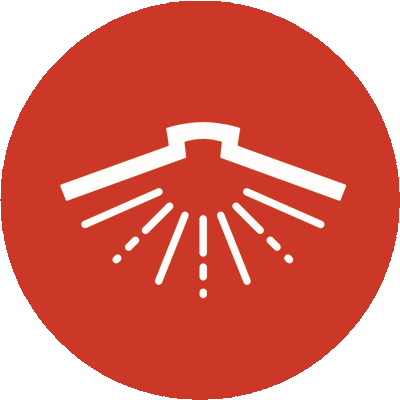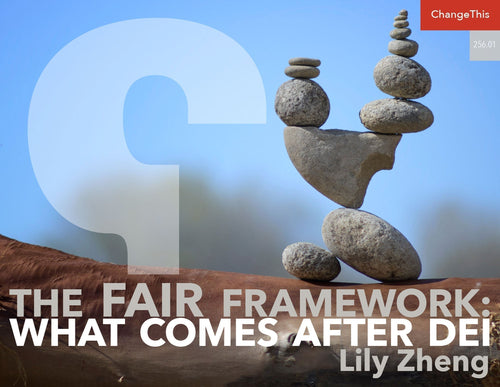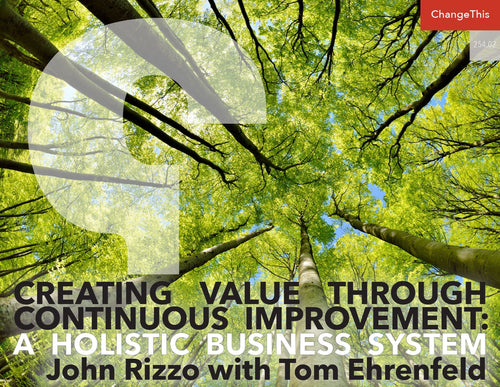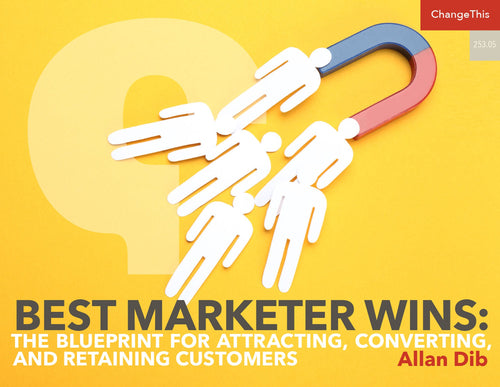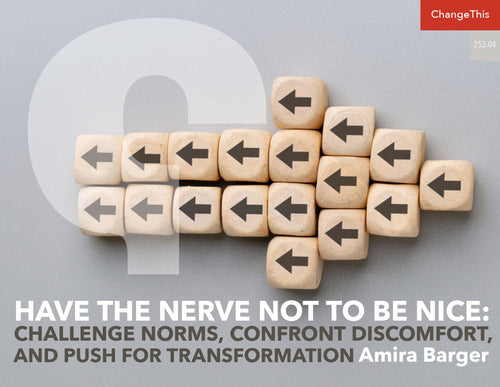Calling All Leaders
"Too often, we think that people who lead in high-stakes matters are special people. They are not. You do not need to be a special person, with super-human powers and nerves of steel as the examples in this manifesto will show. What do you need? Courage, character, judgment, and fortitude."
High-Stakes Leadership has a ring of drama, for good reason.
When risk is great and certainty low, missteps can have catastrophic results. When we think of high-stakes, most of us can name the obvious situations. Too often, we think that people who lead in high-stakes matters are special people. They are not. You do not need to be a special person, with super-human powers and nerves of steel—as the examples in this manifesto will show. What do you need? Courage, judgment, and fortitude.
Mergers, acquisitions, and strategic changes are all high-stakes taken on willingly for the sake of growth. Divestitures, although a different type of action, are also undertaken for the purpose of reshaping a company to achieve a profitable future. Other situations are less obvious and easy to put out of mind, until disaster strikes. Cyber breaches, natural disasters, or loss of critical infrastructure all ignite a response that we hope is planned for, with a practiced response in place. These are the sort of crises we know could happen but they drift from our consciousness; the possibility becomes invisible. Yet, we can establish routines and systems to bring the possibilities to mind and help us be ready. We may detest fire drills, but they save lives.
The most disappointing crises are those that humans cause themselves. Some happen by omission, others are deliberate acts. Manipulation, lying, embezzlement, and threatening colleagues are all shocking when revealed. Enron, Bernie Madoff, WorldCom, Countrywide, and the entire meltdown caused by the fraud-ridden mortgage market were created by people doing things that were, by anyone’s definition, wrong. We shouldn’t describe these as anything but theft.
Some examples of fraud occur when people cheat on something they may think irrelevant to the results of an entire corporation. Engineers rigging tests to yield the results they want rather than the truth aren’t enriching themselves in the monetary terms that someone like Bernie Ebbers, CEO of WorldCom, did. They are pursuing a goal and finding it difficult, and perhaps being pressured by superiors, they finagle.
The Human Barrier to Leadership
It’s ironic that we need leaders to be human, while also expecting leaders to be perfect. Humans, it turns out, have very particular, predictable and often invisible barriers to being capable in all situations. Our very human brains and emotions lead us astray, though many are loath to admit that this is even possible. With the very excellent research done by Daniel Kahneman and Amos Tversky, Dan Ariely, Richard Thaler, Paul Schoemaker and others, we know some of the ways that our humanness leads us to make decisions that aren’t necessarily in our best interest, and how we can be blind to the facts in front of us clearly despite our desire to see them.
Of course, there are those who have mal-intent, and we can’t leave them out of the discussion. Even so, we should remember that these folks are few. They may cause great loss when they have power and they certainly garner tremendous attention, but the number of people who are downright dastardly is few. What gives them room to run is a decision, likely collective, to do nothing.
What are the things that either prevent us from becoming good leaders, or lead us to put up with bad ones? The top four are:
- Overconfidence
- Groupthink
- The need to avoid anxiety
- Bad character
Raise Your Hand If You Are Overconfident
Regardless how humble an individual’s demeanor, most people are overconfident in their own judgment. A just released survey indicates that over 50% of people asked, reported making a very serious financial mistake in the past five years. A follow up question revealed a stunning statistic. About the same percentage of people reported that they were confident in their ability to make good financial decisions.
I saw this over and over again, years ago when I was a stockbroker. I had clients who were sure they had “the answer,” they knew “the secret” to making money. No matter how poorly their investments did, some of them still managed to hold tight to their blatantly foolish beliefs. After watching an arrogant college professor lose a lot of money, I began to doubt that I could keep working in this job. It seemed that I was being paid to watch someone be stupid and, eventually, poorer.
It seems that a major error would call into question the decision making process but it doesn’t. People are not just overconfident—they tend to remember events and outcomes that support what they believe. That’s right, we see what we believe—not the other way around. The confirmation bias is a well-known phenomenon in psychology and you can see it everywhere if you look. If you are honest with yourself, you’ll see it in your own life.
For example, person A is confident in their judgment and ability to make good decisions. Person A pays more attention to the times when they are right. They ignore or rationalize away mistakes. This starts to create a loop in which Person A becomes more confident whether or not they are effective. If Person A also has bad character, this cycle is less benign. The belief that one is right can lead to a feeling of superiority and a need to take control over others seen as less able. It starts to get scary.
What are my options? If you are a normal, well-meaning person who wants to do well and create value for yourself and others, you summon courage. You commit to a view of yourself as talented and good at some things and less skilled at others. Note that this calls upon emotion and cognition.
Once you do this, it’s easier to do the following:
- Make judgments and decisions based on evidence.
- Listen to people you trust. They can help you see when defensiveness is getting in your way.
- Accept that mistakes will occur.
I Gotta Be Me!
Gary Larson has a way with irony. One of his cartoons shows a group of penguins on an iceberg. One has his flippers in the air as he sings, “I gotta be me.” Gary often uses animals to make humorous and ironic points about people. In this case he depicts the urge of a single individual to stand out, even when the group is obviously homogenous. In the United States, individualism has historically been very important to our ability to create everything from technology to art, expand knowledge, and settle in outposts with little infrastructure and support. We may like to think that resisting the pressure of a group is easy and happens by force of will. It turns out, that isn’t the case.
Groupthink is a psychological process that many of us learn about in an introductory psychology course. It means exactly what it sounds like, even if the name is new to you. It is the name for a group dynamic in which the people in a group think alike. What’s wrong with that? The feeling of agreement and even camaraderie can be very rewarding. It’s nice to agree.
But what are the consequences when agreement is a condition of discussion rather than an outcome?
A few disasters that probably had groupthink as a partial cause:
- Encyclopedia Britannica fails to move it’s content to digital media when the value of doing so was high, instead selling the company for a low price years later. Why? All the executives thought their printed volumes were irreplaceable.
- US Navy leaders belief that they would “not be caught napping” days before the attack on Pearl Harbor.
- Enron, Wells Fargo, Equifax, the Challenger explosion, Volkswagen, General Motors…
Go Fever: The Cure for Anxiety
“Let’s make a decision, even if it’s wrong.” I have heard these exact words in more than one business meeting. Why on earth would a smart executive talk like that? It sounds, well, dumb. That said, even executives get tired, angry, and anxious. When a group of people are tired and cranky at the same time, bad decisions are mere seconds away. Recent research shows clearly that fatigue, hunger, and frustration lead to worse decisions. No surprise.
The crew involved in the Challenger launch had reason to be fatigued, frustrated, and anxious. They made a terrible decision fueled by all these emotions and magnified by the very real phenomena called “go fever.” Smart, successful people are still people, and from time to time our emotions and perceptual distortions lead us astray.
So why do groups of people push themselves to endure ten-hour meetings? Doesn’t this make fatigue and frustration a given? Yes. Doesn’t it make impulsiveness more likely? Yes.
The adaptive alternative to this madness is to reward performance, not time and battle scars. No need to assume that important decisions should take longer than more trivial decisions. Time isn’t the relevant variable. Speed of thinking is. As Kahneman says, when the task is complex we need the type of thinking that is more effortful. People can resist this because it feels like a waste of time, slowing them down. Yet, when we use our rules of thumb as our only means of uncovering meaning, we fail too often and don’t really understand why.
When you have an important decision to make, do this:
- Clarify your objectives. Objectives are “whats” not “hows.” Too many discussions happen about “how” when the people talking aren’t on the same page.
- Gather people, not just data. Spreadsheets don’t tell the full story.
- Look at your assumptions and ask, “what if we are wrong?”
- When anxiety creeps in, STOP! Stop pushing, arguing, “making your point” and, for the love of Pete, stop being the “devils advocate” when there is no benefit.
You don’t need a title to do these things.
It has been my privilege to know and work with some very talented leaders who possess the qualities that enable them to guide, inspire, and teach others. When married with good character, these qualities enable extraordinary results for companies, customers, employees, partners, and communities.
Ask yourself what situations can you make better by using your influence, by calling upon your character? If you do that, you are a leader.
About the Author
Constance Dierickx, PhD specializes in working with organizations in high-stakes transitions, including mergers, acquisitions, divestitures, CEO succession, strategic change, and crisis. She is the author of High-Stakes Leadership: Leading Through Crisis with Courage, Judgment, and Fortitude (Routledge; September 2017).


